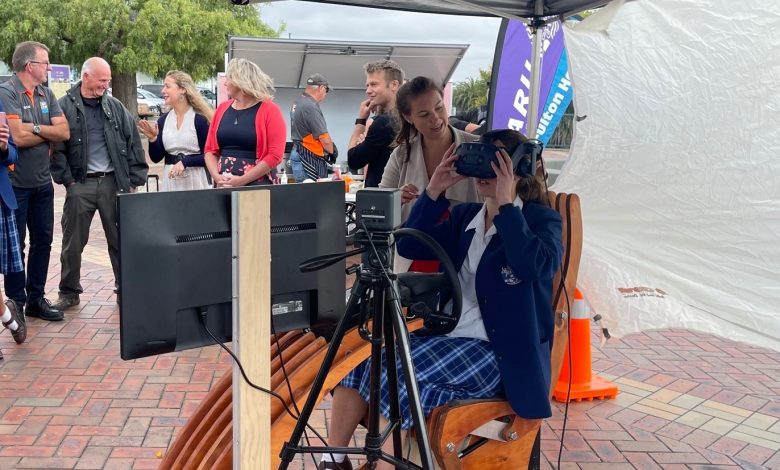Driving simulator in schools helps next gen drivers

A high-tech driving simulator developed in New Zealand for New Zealand driving conditions could make young Kiwis more proficient when they get behind the wheel of an actual car, and help address the social cost of youth-related road crashes.
To be piloted in secondary schools in Mid-Canterbury and South Canterbury during 2021, the simulators are being developed by Dunedin-based Gfactor Technologies. They are co-funded by CODE (New Zealand Centre of Digital Excellence) and commissioned by Venture Timaru, Timaru District Council and Fulton Hogan.
The goal is a virtual reality driving experience without the cost, risk, and stress of actually driving. The initial focus will be on driver distractions, and additional functionality will be added over time with the help of student feedback. Upon full development, the simulators have potential application in schools nationwide.
The simulator creates a three dimensional experience of driving on ‘actual’ local roads, with the traffic and distractions encountered there. A reward and penalty system will allow drivers to track improvements across various aspects of driving, for higher levels of skill and awareness.
Establishment Director of CODE, Tim Ponting, says the project has major social and economic benefits, built around cutting edge games technology and a fun experience for learner drivers.
“As such, CODE and the independent funding panel gave it wholehearted support, and we’re thrilled to play a part in bringing it to life.”
The Gfactor team have been developing the graphics technologies, artificial traffic systems, and the various functions required to deliver high end, real-life simulated experiences via their CoDrivr programme. Prototype projects in motorsport and off-road training have given the Dunedin company a strong foundation in virtual product development.
Gfactor Chief Executive Rhys Gardner says they were unable to find anything internationally that matched New Zealand road conditions and set about building a New Zealand solution themselves.
“This is as near to the real experience as you can get without actually driving a car – and we’re ecstatic to be working with some very progressive partners who share our vision for engaging the young and enhancing their driving skills.”
Young driver-related vehicle crashes take, on average, 130 young lives and cause more than 1,000 serious injuries every year in New Zealand. This has an all-up social cost of $2.09 billion per year. In Mid & South Canterbury between 2016 and 2020, there were on average 5 fatal and 25 serious injury young-driver (15-24 years old) related vehicle crashes every year according to crash statistics sourced from Waka Kotahi.
South Canterbury has been an innovator in youth driver development, introducing a ‘first generation’ driver simulator, gifted by Fulton Hogan, and last year establishing the NZQA-approved Certificate in Commercial Road Transport (Heavy Vehicle Operation) based at Ara Institute’s Timaru campus.
Fulton Hogan’s Brett King says technology can accelerate the process of young people gaining safe driving skills, and the company is committed to helping the community make full use of this.
“We learned through the first-generation driving simulator how powerful the concept could be, but this Generation 2 system takes it to a whole new level as well as tailoring it to our roads,” Brett says.
Venture Timaru’s Nigel Davenport says the initiative has significant employment as well as safety implications. “The earlier we can expose younger people to driving awareness and decision-making, the better prepared they will be to obtain their drivers’ licenses. After all, a key requirement of our businesses when employing new staff is a valid driver’s license.”
Land Transport Manager for the Timaru District Council, Suzy Ratahi, says the aim is to work together to bring about a step change in road safety. “We are committed to seeing this pilot succeed, in the hope it becomes one component of an enduring road safety education programme for our community, targeting one of our most at-risk demographic groups.”
South Canterbury’s Road Safety Co-ordinator Daniel Naudé describes the project as “very exciting’.
“It has huge potential to change behaviour and upskill novice drivers. It’s a real value-add to their training.”









